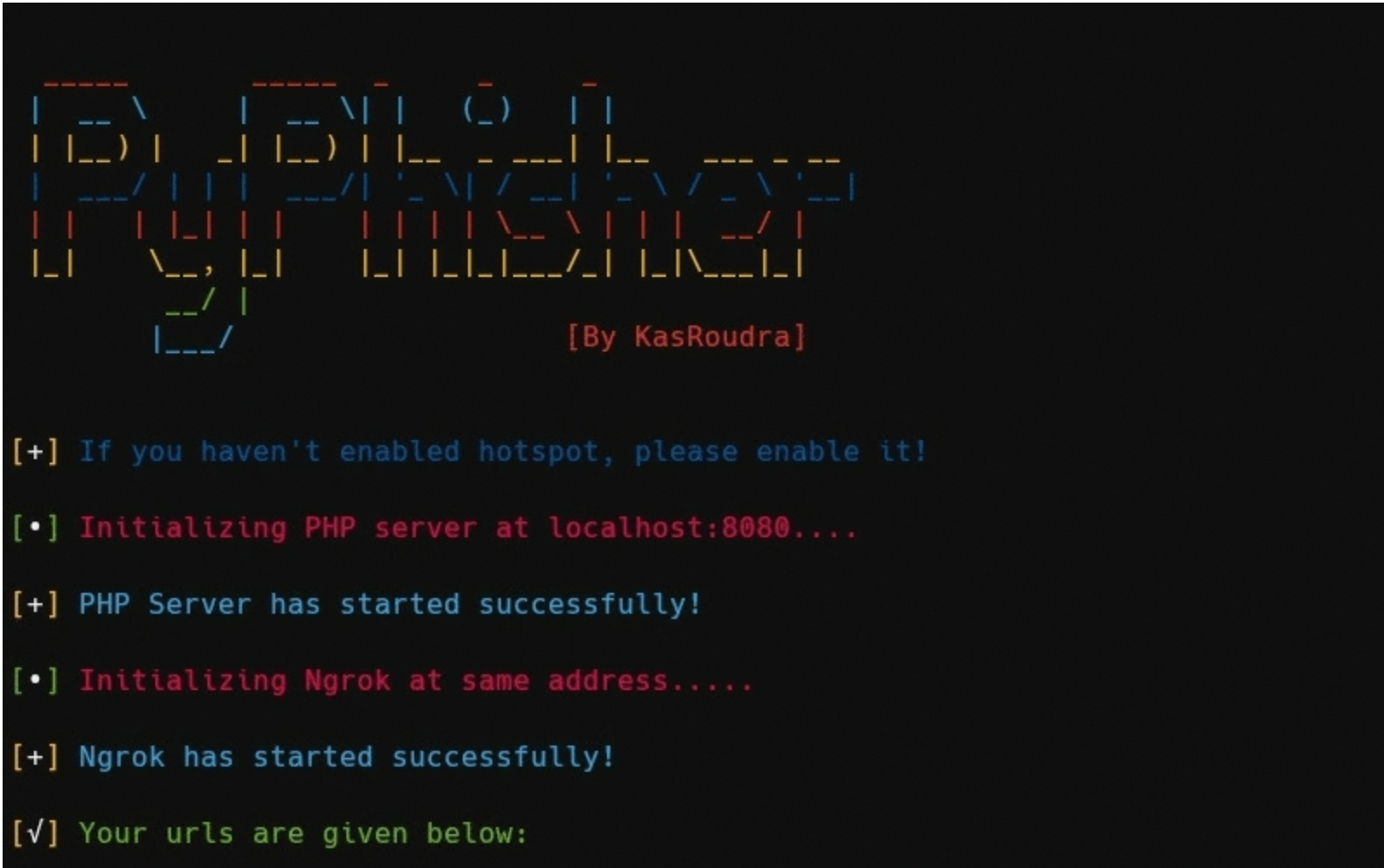No products in the cart.

PyPhiser is an ultimate phishing tool in python. Includes popular websites like Facebook, Twitter, Instagram, Github, Reddit, Gmail, and many others. Installation Install primary dependencies (git and python) For Debian sudo apt install git python -y For Arch sudo pacman -S git python --noconfirm For Fedora sudo yum install git python -y For Termux pkg install git python -y Clone this repository git clone https://github.com/KasRoudra/PyPhisher Enter the directory cd PyPhisher Run the tool python3 pyphisher.py Or, directly run wget https://raw.githubusercontent.com/KasRoudra/PyPhisher/main/pyphisher.py && python3 pyphisher.py Options usage: pyphisher.py [-h] [-p PORT] [-o OPTION] [--update | --no-update] options: -h, --help show this help message and exit -p PORT, --port PORT PyPhisher's server port [ Default : 8080 ] -o OPTION, --option OPTION PyPhisher's template index [ Default : null ] --update, --no-update Check for update (default: True) Features: Multi-platform (Supports most Linux) 65 Website templates Dual Tunneling (Ngrok and Cloudflare) Easy to use....
https://github.com/KasRoudra/PyPhisher is no longer working what to do
A very big thanks to kelvinethicalhacker at gmail com for the great the work you done for me, i got the email address on the net web when i needed to hack my husband cell phone he helped me within few hours with whatsApp hacking and GPS location tracking direct from my person phone i know how my husband walks, thanks for the helped you do for me for every grateful for your helped, you can contact him through gmail via kelvinethicalhacker at gmail.com or Telegram, calls, text, number +1(341)465-4599, if you are in needed of hacking services, contact him..
Click here this site setclockwindows just follow here.
A great hacker is really worthy of good recommendation , Henry
really help to get all the evidence i needed against my husband and
and i was able to confront him with this details from this great hacker
to get an amazing service done with the help ,he is good with what he does and the charges are affordable, I think all I owe him is publicity for a great work done via, Henryclarkethicalhacker at gmail com, and you can text, call him on whatsapp him on +12014305865, or +17736092741,
When I attempt to git clone, Kali asks for github username and password…
There is a new version at https://github.com/KasRoudra/PyPhisher so you can check it out. If the problem will continue post an issue on the github page, and the developer will offer assistance.
Congratulation for your good job, but what about MFA?
Most of the services you added requires MFA. Only stealing username and password is not enough to demonstrate that hackers can gain access to your account.
Think about Modlishka. Very powerful tool, but unusable today, that could grab the MFA token as well.
If you can add this feature, your tool should become the first one to use do demonstrate to people how simple is to gain access to everyone’s account.